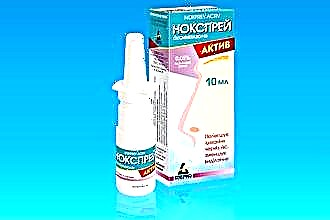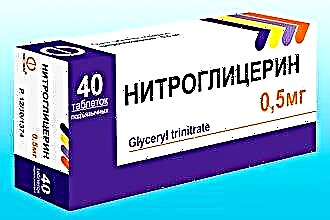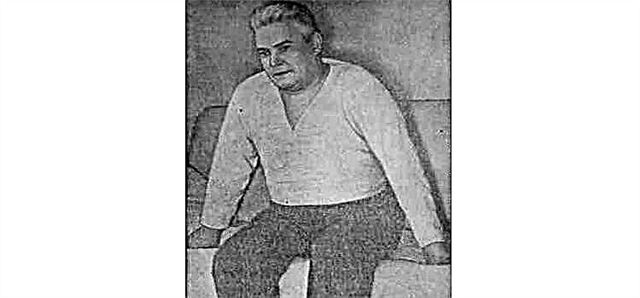 Chronic pharyngitis is characterized by a slow course of the disease and includes periods of exacerbation and remission.
Chronic pharyngitis is characterized by a slow course of the disease and includes periods of exacerbation and remission.
Often, an exacerbation occurs against the background of a decrease in local and general immunity, for example, as a result of viral diseases or severe hypothermia.
Treatment of chronic pharyngitis in adults is determined by the form of the disease, the general condition of the patient and the presence of accompanying symptoms.
Causes
The causes of pharyngitis can be different. There are several main factors that provoke the development of the inflammatory process:
- systematic inhalation of highly polluted or dusty air;
- prolonged stay in conditions of very low temperatures (inhalation of air, the temperature of which is below 20 degrees);
- the presence of such a bad habit as smoking;
- excessive consumption of alcoholic beverages;
- improper or untimely treatment of various inflammatory processes of the nasopharynx.
Also, among the main factors provoking the onset of chronic pharyngitis, the presence of pathologies of the digestive system is distinguished. In this case, the contents of the stomach (gastric juice and gastric enzymes) may be thrown into the pharynx (reflux), irritating the mucous membrane and provoking inflammation.
Symptoms
To figure out how to cure chronic pharyngitis, you need to understand that the therapy of the disease is determined by its form. Distinguish pharyngitis in hypertrophic, atrophic, subatrophic forms, as well as acute and catarrhal rhinopharyngitis. Moreover, both during the period of remission and during an exacerbation, the symptoms of the disease will be determined by the type of pharyngitis.
In chronic pharyngitis in a hypertrophic form, there is a thickening of the mucous membranes in the throat, as well as an increase in the amount of lymphoid tissue. The patient experiences the following symptoms:
- feeling of a foreign object in the throat, dryness;
- soreness when swallowing food or drinks;
- the presence of difficult coughing up purulent viscous secretion in the throat;
- the presence of an unpleasant odor from the nasopharynx;
- dry, annoying cough.
For the atrophic form, the following symptoms are characteristic:
- the occurrence of constantly aggravating sclerosis of the mucous membranes of the nasopharynx;
- the development of a suffocating cough;
- the presence of purulent dry crusts on the surface of the pharynx.
The chronic form of subatrophic pharyngitis also has quite serious symptoms and is accompanied by pain when coughing, dryness in the nasopharynx, and the feeling of a foreign object.
The acute stage of rhinopharyngitis is accompanied by discomfort and sore throat, there is often significant hyperthermia (above 38 degrees) and poisoning of the body with the waste products of viruses or bacteria (intoxication).
Drug therapy
Treatment of chronic pharyngitis takes more time and requires a special approach, in comparison with the treatment of the acute stage of the disease. The basic approach in the treatment of this disease is to eliminate the cause of the inflammation. Whereas in the chronic form of the disease, it is extremely difficult to determine the causes.
Often patients are interested in how to treat chronic pharyngitis and can it be completely cured? Doctors agree that it is not only possible to treat this form, but also necessary. Moreover, most often this can be done outside the hospital, clearly following the instructions of a specialist. The attending physician, based on the examination of the patient, collection of anamnesis, test results (blood, urine) and other diagnostic measures, will select an adequate and effective treatment.
 Most often, therapy for chronic pharyngitis includes drugs and procedures such as:
Most often, therapy for chronic pharyngitis includes drugs and procedures such as:
- Treatment with antimicrobial and antiviral drugs, depending on the causative agent of the disease. So, if pharyngitis is caused by the effects of a bacterial infection, then the treatment is carried out with antibiotics (Augmentin, Amoxiclav, Sumamed). If viruses are the cause of the disease, then the patient should use antiviral drugs (Groprinosin, Arbidol, Amiksin, Ingavirin).
- Sometimes the cause of pharyngitis can be an allergic reaction of the body to dust, wool, certain foods, strong odors, etc. In this case, it is necessary to exclude the cause of the allergy and use antihistamines in parallel (Loratadin, Suprastin, Diazolin, Zodak).
- At elevated body temperature (above 38 degrees), it is necessary to use antipyretic drugs. Most often, drugs based on ibuprofen (Nurofen, Ibuprofen) and paracetamol (Efferalgan, Paracetamol, Grippostad, Coldrex) are used, which not only lower the temperature, but also have an analgesic effect for severe sore throat.
- Hoarseness in the pharynx can be reduced with the help of antiseptic preparations produced in the form of lozenges, lozenges, sprays (Ingalipt, Hexoral, Chlorophyllipt, Collargol, Septolete).
- Gargling with antiseptic solutions (Chlorhexidine, Chlorophyllipt), which help moisturize the mucous throat, thin viscous secretions, exfoliate and remove crusts.
- Steam inhalation and inhalation with a nebulizer also have a positive effect, improving the general condition of the patient with pharyngitis. For the procedure, antiseptic (Dekasan), alkaline (Borjomi) solutions are used, as well as saline to moisturize the pharyngeal mucosa.
- If chronic pharyngitis is diagnosed, treatment may be supplemented with physiotherapy. This can be electrophoresis, ultra-high-frequency therapy (UHF), ultrasound therapy.
- In the treatment of sluggish pharyngitis, it is advisable to use vitamin complexes and drugs to strengthen immunity (Undevit, Virum, Duovit, Imudon, IRS-19).
- The correct diet, the elimination of salty, spicy, sour, very hot and cold foods will help to quickly cure a chronic disease.
Traditional medicine recipes
It is known that in order to completely cure chronic pharyngitis, it is necessary to use a whole range of various medical and physiotherapeutic procedures, as well as recipes of traditional medicine.
Important! Treatment of pharyngitis using traditional medicine methods should be carried out exclusively in combination with drug therapy and under the supervision of a physician.
The most effective recipes for traditional medicine in the treatment of pharyngitis include:
- A medicinal product based on garlic and honey. It's easy to prepare: chopped garlic (a couple of medium-sized cloves) is mixed with 30 grams of honey. Take such a remedy 5 ml three times a day until complete recovery.
- Infusion of spruce and fir buds. To prepare the solution, the specified ingredients are poured with boiled water at the rate of a kilogram of dry matter per one and a half liters of liquid. The resulting mixture is brought to a boil and cooked for twenty minutes. The broth is infused for at least an hour, filtered, a glass of honey, a drop of propolis tincture are added. Drink one tablespoon three times a day.
Important! Before using any traditional medicine recipe used to treat pharyngitis, make sure that you do not have an individual intolerance to each of the components that make up the drug.
- It is known that rinsing is one of the most effective treatments for pharyngitis. A mixture of chamomile, sage, St. John's wort, linden flowers and eucalyptus is used, which is poured with boiling water (one part of dry matter per ten parts of liquid) and infused for half an hour. In addition to rinsing, this broth can be used in the form of tea.
- Also, for the treatment of the inflammatory process in the pharynx, rinsing using ordinary soda or saline solutions (5 grams of salt or soda per 200 ml of warm boiled water) is effective.



